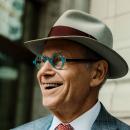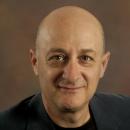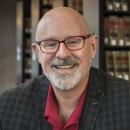Sustainable Investing and Environmental Markets: Richard Sandor Discusses New Book with International Scholars
Speaking to an engaged audience of nearly seven dozen international lawyers and scholars attending the fourth annual Summer Institute in Law and Economics, financial innovator Dr. Richard L. Sandor, the Aaron Director Lecturer in Law and Economics at the Law School and the principal supporter of the Coase-Sandor Institute for Law and Economics, delivered a powerful lecture arguing that markets can play an important role in tackling difficult environmental issues.
Dr. Sandor, the co-author of a new book on the topic, Sustainable Investing and Environmental Markets: Opportunities for a New Asset Class, focused his remarks on the commoditization of air, water, and renewable energy. "Environmental asset classes such as air and water markets are not a hope for tomorrow but a reality today. This new asset category promises to grow dramatically in the 21st century as financial analysts, investors, and corporations around the world try to find ways to profit or reduce costs while promoting environmental social benefits," he said.
"Clear property rights and well-designed markets can be used to ensure that you can reduce pollution at the lowest possible cost to society. It has already worked in the US with the acid rain cap-and-trade program,” Dr. Sandor said. “It is working well in Europe and California with carbon. China is embracing markets for environmental improvement. The applications to water quality and quantity are also very promising,”
Sandor and his wife, Ellen, are the principal donors to an endowment in law and economics at the Law School. The Sandors made the gift in honor of Dr. Sandor’s mentor, the late Nobel Laureate in Economics Ronald Coase.
As he introduced Dr. Sandor, Omri Ben-Shahar, the Leo and Eileen Herzel Professor of Law and Kearney Director of the Coase-Sandor Institute for Law and Economics, recalled his own reaction to the Sandors’ gift.
“I couldn’t have been happier, and not just because of the resources that would make events like this possible, but because I could not have dreamed of a better partner to come and be part of what we do,” Ben-Shahar said. “Dr. Sandor’s innovations are deeply relevant to what we study, and having our center named the Coase-Sandor Institute is a tribute to the fact that we have these two inspirations, one coming from the academic world and the other from the implementation side, joining forces and enriching our academic mission.”
Dr. Sandor, whom Time magazine called the “father of carbon trading” after he designed and launched the Chicago Climate Exchange in 2003, is the Chairman and CEO of Environmental Financial Products, which specializes in inventing, designing, and developing new financial markets. EFP was established in 1998 and was the predecessor company and incubator to the Chicago Climate Exchange, as well as the European Climate Exchange and the Chicago Climate Futures Exchange. Sandor’s first book, Good Derivatives: A Story of Financial and Environmental Innovation, was published in April 2012 and translated into Chinese by People’s Press.
“One of the things we pride ourselves on at UChicago is that we treat ideas very intensely,” said Deputy Dean Tom Ginsburg, the Leo Spitz Professor of International Law, before Sandor spoke. “We revere them, but we also challenge them. We also think ideas have tremendous power to change the world. And Dr. Sandor is someone whose ideas really have transformed the world. He’s been able to take ideas and bring them to bear on pressing real-world problems.”


